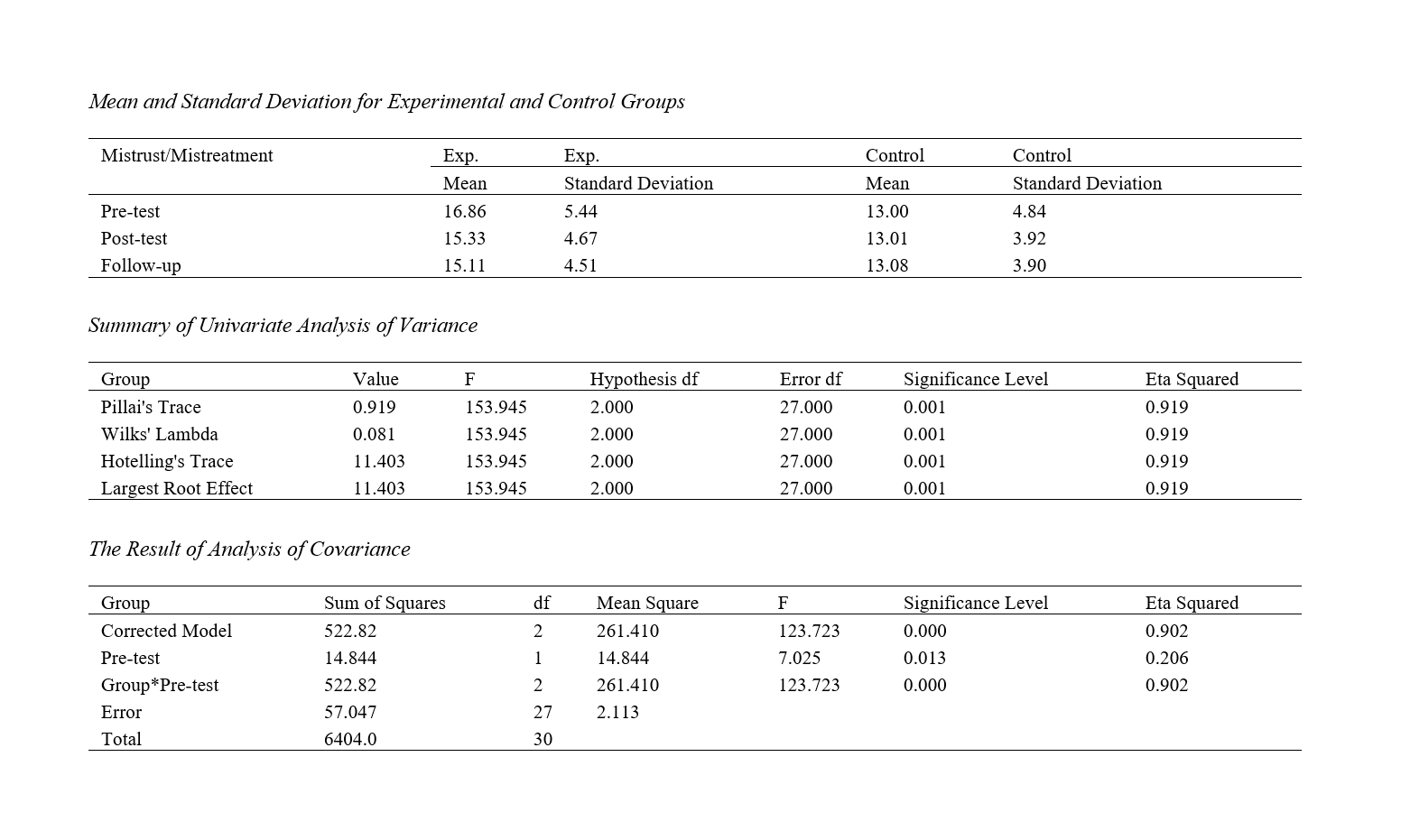Investigation of the effectiveness of treatment based on rhythmic movements on the level of mistrust/misbehavior schema of women with depressive symptoms
Keywords:
mistrust/misbehavior schema, treatment based on rhythmic movements, depressionAbstract
Objective: The current research aimed to investigate the effect of rhythmic movement-based therapy on the mistrust/mistreatment schema in women aged 20-30 years with depression symptoms who attended counseling centers in Tehran.
Methods and Materials: This study is applied in terms of its objective and quasi-experimental in terms of its method, following a pre-test and post-test design. The population included all women aged 20-30 years with depression symptoms attending four counseling centers in Tehran, from which 30 eligible participants were purposively selected and randomly assigned into two groups (15 in the experimental group and 15 in the control group). Interventions based on the therapeutic protocol (rhythmic movement-based therapy) were conducted in 8 sessions for the experimental group, while the control group received no intervention. The Young Schema Questionnaire (1988) (short form with 90 items) was utilized for assessment. Descriptive and inferential statistical indices, including the covariance test, were employed for data analysis.
Findings: Results indicated that rhythmic movement-based therapy effectively reduces the mistrust/mistreatment schema in women aged 20-30 years with depression symptoms attending counseling centers in Tehran (p=0.013).
Conclusion: It can be concluded that rhythmic movement-based therapy, one of the creative art therapies or expressive emotion therapies, can positively influence schemas.Downloads

Downloads
Additional Files
Published
Submitted
Revised
Accepted
Issue
Section
License

This work is licensed under a Creative Commons Attribution-NonCommercial 4.0 International License.








